Progressive Taxation in Bangladesh Why and How?
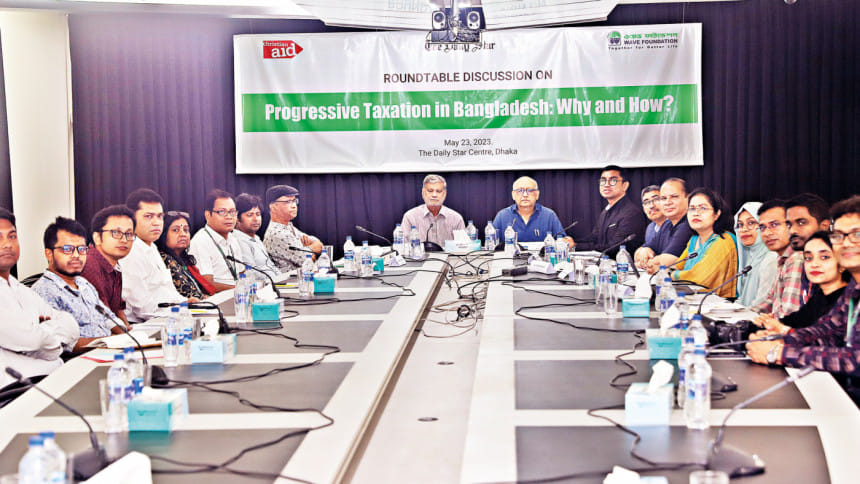
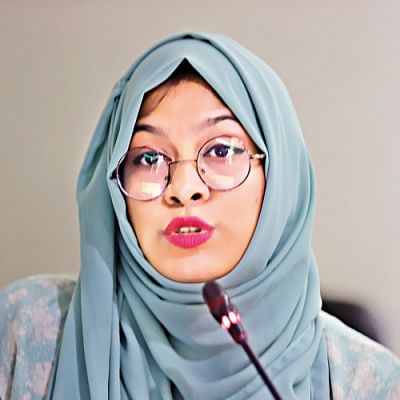
Sanjida Islam, Lecturer, BBA Program, Daffodil Institute of IT
The income tax system in Bangladesh is regressive. It follows a pattern where the tax burden increases proportionally with income until it reaches a stagnant rate of 30%. Ideally, a more progressive structure would have involved a higher tax rate.
Another significant finding of our research was that regardless of income class, everyone pays the same 15% VAT amount. VAT collection constitutes 36.5% of the total tax revenue, while individual taxes, including corporate taxes, account for 36.8%. This imbalance arises as the majority of the population is obligated to pay VAT, leading to an increase in the burden.
Based on our findings, the per capita or daily income in our country is approximately BDT 200 or around 2 USD (subject to fluctuation with exchange rates). If an individual's daily income falls within this range, they have to pay BDT 30 to the government as 15% VAT, which significantly impacts their earnings. Consequently, the poor bear a heavier VAT burden, which could have been alleviated by effectively tackling money laundering. Additionally, various exemptions granted to multinational companies to attract foreign investment create a burden that should not be shifted onto the poor.
Money laundering and tax exemptions for multinational companies result in an annual loss of BDT 5 thousand crores for the government. By taking appropriate measures to reduce such incidents, the government can generate significant revenue. This would be challenging if the burden is passed on to low and middle-income individuals. Another finding of our study is that the tax process itself is complex. Citizens often feel overwhelmed and seek assistance from others due to a lack of understanding of the terms and procedures. Simplifying and digitizing the tax process would make it more accessible and enhance citizen participation, thereby facilitating tax collection.
The combination of low revenue generation and annual budget deficits prevents the government from investing adequately in the social sector. Consequently, poverty, unemployment, lower living standards, and inadequate services in areas like education and health persist. It is crucial to raise awareness among citizens about taxation and simplify the tax process. Introducing a fair and poverty-friendly tax regime is imperative. Although Bangladesh is a developing country, adjusting the VAT amount according to an individual's income would create a more progressive system. Simplifying the tax return process would promote good corporate governance. NGOs and government organizations should collaborate to raise awareness and increase citizen participation.
The government's decision to increase taxable income from 3 lakh to 3.5 lakh does not account for the inflation rate, which raises concerns about its progressiveness. Some individuals purchase savings certificates just before filing their tax returns to benefit from the investment allowance. However, for low-income individuals, even if they save 1 lakh taka and purchase a savings certificate, they still have to pay taxes, further burdening the poor. These aspects need to be considered more comprehensively to ensure greater citizen engagement and participation in the tax system.
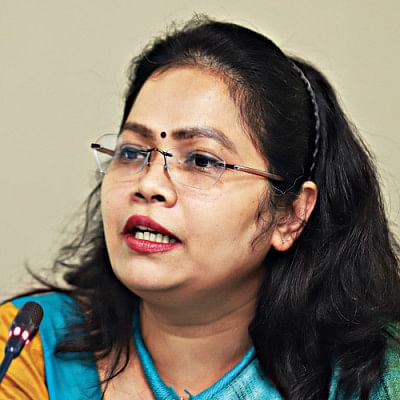
Dr Sayema Haque Bidisha, Research Director, SANEM
Progressive taxation serves not only as a means of revenue collection but also as a powerful tool to combat economic inequality. It is logical to expand the tax threshold, taking into account overall price inflation, in order to provide relief to the middle class. Additionally, a more progressive approach is needed for lower income tax slabs, with higher tax rates implemented for upper income brackets.
A significant and progressive overhaul is required for the wealth tax slabs, ensuring a systematic structure that takes into consideration the rise of major industries in cities beyond Dhaka. Encouraging tax compliance among new taxpayers can be facilitated through incentives and benefits offered at tax fairs.
To eliminate harassment, bureaucracy, and corruption in the tax payment process, it is essential to digitize the individual identification system. By shifting the focus from individuals to their files or profiles, the process can become less intrusive. Promoting the Universal Self-Assessment system will further reduce harassment and corruption.
To combat tax evasion, it is crucial to accurately identify the rightful owners of assets, as individuals often attempt to avoid taxes by associating assets with family members. Digitalization can significantly reduce tax evasion and enhance accessibility to government tax-related services by minimizing associated costs.
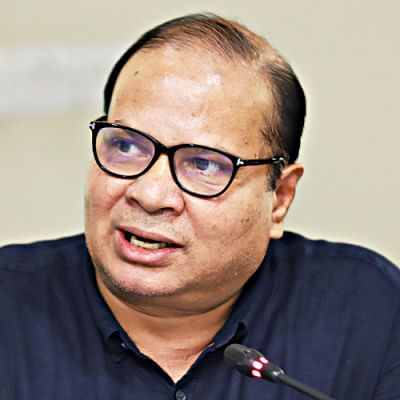
Dr S M Zulfiqur Ali, Senior Research Fellow, BIDS
Despite the challenges posed by Covid-19 and the Ukraine war, our efforts in poverty alleviation have shown significant progress, as indicated by research conducted by BIDS and the survey conducted by BBS in 2022. Prior to the pandemic, the poverty rate was declining by 1%, but it has now increased. The survey reveals that over 50% of the current poverty population can be categorized as the "new poor."
The "new poor" refers to individuals who hover around the poverty line and fall below it when their income decreases by just 5 or 10 percent. Compared to the existing poor, the progress in poverty reduction and graduation rates is relatively higher for the new poor.
Bangladesh's Tax-GDP ratio is the lowest among South Asian countries, and only one-third of individuals with taxpayer certificates properly submit their taxes. The burden of indirect taxes disproportionately affects the poor and extremely poor. Although the poverty rate may be decreasing, income inequality remains high. Therefore, implementing progressive tax distribution is crucial from an equity, fairness, and income redistribution perspective to reduce this disproportionate burden and address income disparities.
Moreover, progressive taxation is essential for economic stability and social cohesion. To foster a strong middle class, we must reduce income disparities and utilize tax revenues from the wealthy for public services and investments in social sectors that benefit the middle and lower classes. This will promote social stability and cohesion.
Addressing the challenges posed by the informal economy is integral to implementing progressive taxation. We must also investigate the various ways in which individuals such as farmers and doctors evade taxes. It is crucial to ensure transparency in how taxpayers' money is utilized, fostering trust and motivating more people to comply with tax obligations.
Before addressing wealth tax, inheritance tax, and capital gains tax, it is necessary to establish a progressive tax system. Lastly, we should reevaluate the tax obligations for all individuals, irrespective of whether they currently pay taxes or not.
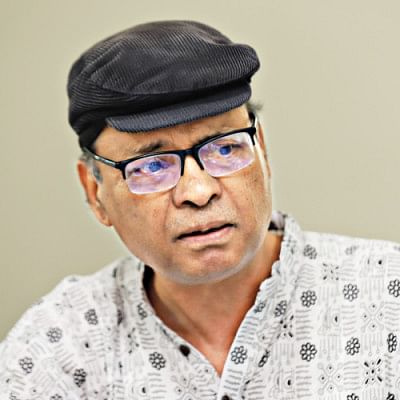
Dr MM Akash, Professor, Department of Economics, Dhaka University
It is important to recognize the significant role of the state in the prosperity of developed capitalist countries. Countries like South Korea and Scandinavian nations have implemented high marginal tax rates, reaching up to 90%. They also prioritize minimum income security, ensuring that even those who do not earn receive government support. This approach allows the wealthy to earn to their fullest potential, with their higher taxes contributing to societal welfare. The effectiveness of state capitalism depends on the nature of the state itself. If the state can redistribute the collected taxes equitably, it can achieve success.
In our country, even the poorest individuals who earn just two dollars a day contribute to taxes through VAT, despite their inability to pay income tax. Sramik Karmachari Oikya Parishad (SKOP) advocates for a monthly minimum wage of BDT 20,000, while the tax threshold is set at BDT 30,000. By targeting the top 10% of the wealthiest individuals, the middle class could potentially be exempted from income tax. However, achieving this requires a shift in the state's income biases and a transition from an indirect to a direct tax system. Additionally, it is crucial to address the issue of expenditure bias, as people often do not perceive tangible benefits from paying taxes.
To ensure greater transparency and local initiative, development plans could be formulated at the upazila level, allowing tax collection at that level. Unfortunately, our current political system does not support this approach, as electoral success tends to favor those with financial resources. Once elected, individuals often prioritize maximizing their own financial gains. Ultimately, the decision to implement a progressive taxation system is a political one. By garnering widespread support for progressive taxation, the reliance on personal financial investments to attain success can be diminished.

Mamun Rashid, Country Clients and Markets Lead, PwC Bangladesh
In my opinion, a progressive taxation system hinges on strengthening the ability-to-pay approach, ensuring that those with higher earnings contribute a greater proportion of taxes. However, based on my experience, finance ministers tend to discourage tax exemptions prior to presenting the budget. They often seek assistance in identifying potential sectors for generating tax revenue, aiming to avoid criticism of the government's financial plans. While the government emphasizes the interests of the people in budget discussions, it is commonly observed that big business groups reap the benefits from the budget before its finalization. We need to prevent these influential business groups from receiving tax breaks.
There is a prevalent notion that agriculture should remain exempt from taxation, but our studies do not support this stance. Presently, agricultural entrepreneurs are generating substantial profits through contract farming and manufacturing, yet we face challenges when attempting to impose taxes on them.
A feasible solution could involve utilizing IoT devices to trace individuals who purchase cars or luxury goods. By extending the IoT mechanism to track the earnings and expenditures of individuals, the government could make a political decision to enable effective tax collection. However, practical steps in this regard are often hindered by requests for tax exemption that originate from higher-level authorities.
There is an asset surcharge already in Dhaka practice, however while there is 2 hundred thousand people with more than 1 crore Taka bank deposits, only 11 thousand pay asset surcharge. In a country where tax evasion is quite rampant, political governance also play a significant role in progressive taxation.
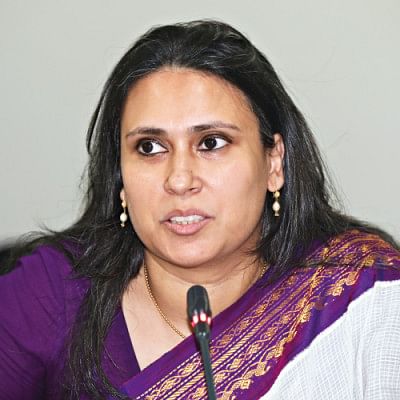
Nuzhat Jabin, Program Manager, Christian Aid
In a recent research conducted with CPD, we discovered that tax losses range from approximately 42 thousand crores to 2.25 lakh crore taka per year. It is crucial to diversify our revenue base and focus on domestic resource mobilization, as emphasized by SDG 16. There has been discussion about implementing a minimum 2000 taka return, but it is important to note that simply imposing a minimum cap may not be effective. In fact, it could make the taxation system regressive rather than progressive. To address this issue, we need to ensure strong vigilance regarding revenue losses and tax avoidance.
For years, the capacity gap and weak administration of the National Board of Revenue (NBR) have been topics of persistent discussion. Addressing this matter requires strong political will, as it is fundamentally a political issue. It is imperative to reconsider and reform existing tax mechanisms and systems in order to effectively tackle this problem.
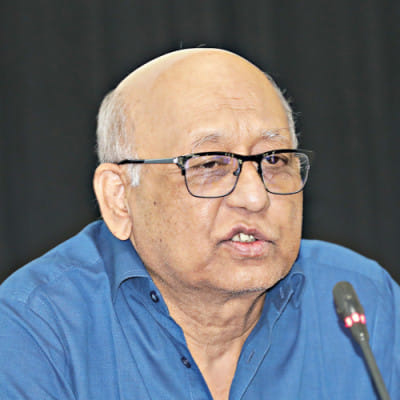
Mohsin Ali, Executive Director, WAVE Foundation
In Bangladesh, there is a lack of awareness about taxes among people from all economic backgrounds. They harbor doubts regarding the positive impact of taxation and exhibit a strong inclination towards tax evasion. There is a unanimous belief that the tax assessment sector is highly corrupt in the country.
WAVE Foundation focuses on poverty elimination as one of its key objectives. To eliminate poverty, the government needs to allocate a larger budget, particularly in sectors like social safety nets, healthcare, and education. This is where the issue of tax justice comes into play. Presently, we collect only one-third portion of the income tax of the total expected amount, whereas we collect a large share of VAT, which is about two-thirds of the NBR-controlled source of financing for the national budget. If the government can collect more direct tax, it will reduce the burden of the indirect tax which is mostly vested on the poor, and certainly it is an unjust practice. By ensuring fairness in taxation, the government will have more resources to invest in these critical sectors of development and can be a backup source to tackle the budget deficit.
To establish a robust and just taxation system, it is crucial for both governmental and non-governmental actors to actively engage in educating the public about its significance. This will contribute to an increase in the number of taxpayers.
One suggestion put forward during today's roundtable discussion is to increase direct taxes and determine indirect taxes based on an individual's financial capacity. Expanding the concept of tax at source is also recommended. I fully endorse these recommendations. Income tax and wealth tax should be increased and VAT should be differentiated by income and reduced. System of tax assessment, return submission and tax paying should be simplified with digitalized and user-friendly system. If we want to achieve the SDGs and become a middle-income country by 2030, we have to be undoubtful regarding accelerating our own financial capacity by establishing a progressive taxation system in Bangladesh.
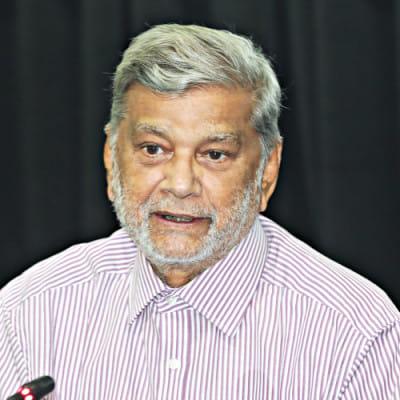
M A Mannan, MP, Honourable Planning Minister, Government of Bangladesh
While it is indeed true that income inequality is on the rise, the government is actively working to address this issue by uplifting lower-income individuals. One positive aspect is the absence of hunger poverty and shelter poverty, indicating progress. Furthermore, the living standards of low-income individuals have seen improvements. However, the income of higher-income individuals has skyrocketed, leading to a deepening of inequality.
To combat inequality, the government initiated income transfer programs through social safety net programs in 1996, marking the first of its kind in Bangladesh. However, the government is hesitant to increase the amount allocated to the social safety net fund, as it may inadvertently discourage self-sufficiency.
Many individuals are advocating for a reduction in the value-added tax (VAT) rate, despite its significant contribution to government revenue. VAT is a universal and unavoidable tax, and people tend to feel its impact the least. The challenge lies in the fact that numerous businesses do not adequately fulfill their VAT obligations to the government. Consequently, since 2012, the government has been endeavoring to digitize the VAT process. Nevertheless, it may be worth considering exempting essential food items such as rice, pulses, and oil from VAT.
There are numerous tax possibilities available, such as wealth tax, inheritance tax, debt duty, unclaimed assets, and waqf properties. It is essential for us to thoroughly explore these revenue opportunities.
I once proposed the idea of using the term "Assistant Revenue Officer" instead of "Tax Inspector" as the latter conveys a sense of fear. The suggestion was initially accepted and taken into consideration for implementation. However, it faced significant resistance and was ultimately abandoned. It is crucial for us to work towards changing such mindsets.
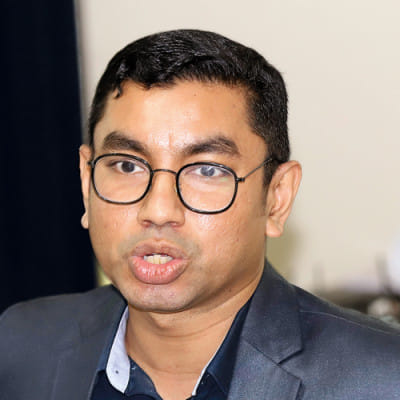
Tanjim Ferdous, In-charge of NGO and Foreign Missions at the Business Development Team, The Daily Star & Moderator of the session
The forthcoming fiscal year's budget is scheduled to be unveiled in the coming days. With a major portion of the expenditure budget anticipated to be sourced from taxes and Value Added Tax (VAT), the National Board of Revenue (NBR) has set a target to collect 4 lakh 70 thousand crore taka from this sector in the upcoming financial year. Currently, there are approximately 87 lakh individuals in the country who possess a Taxpayer Identification Number (TIN), but only 29 lakhs consistently file their tax returns each year. Many individuals within the tax system either struggle to obtain their TIN or, even if they have one, face uncertainty in complying with tax return filing requirements. In light of this situation, the government is considering the appointment of private organizations as tax collection agents for the upcoming year. Implementing progressive tax system will play a vital role in bringing benefits to bottom of the pyramids. Super rich people will pay more tax and by the trickledown effect poor's life can be changed ensuring quality social services and safety net programs. It is also necessary to streamline the overall tax system.
Recommendations
- Introduce a just and poor-friendly tax regime.
- Political determination is crucial to establish and uphold progressive taxation.
- To prioritize the welfare of lower-income citizens, the government should shift its focus to other areas of taxation and consider reducing VAT.
- The government and non-governmental actors should come forward to make people aware of the importance of a just and robust taxation system.
- Increase direct taxes
- Determine indirect taxes based on an individual's ability to pay.
- Simplify the tax return process
- Prevent influential business groups from receiving tax breaks.
- Enhance the capacity of the National Board of Revenue (NBR).
- Transparency is essential to demonstrate the proper utilization of taxpayers' money, thereby motivating greater compliance and fostering trust in the tax system.

 For all latest news, follow The Daily Star's Google News channel.
For all latest news, follow The Daily Star's Google News channel. 


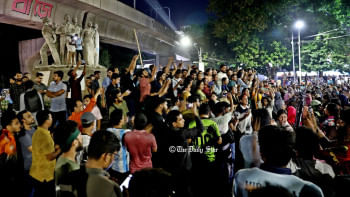
Comments